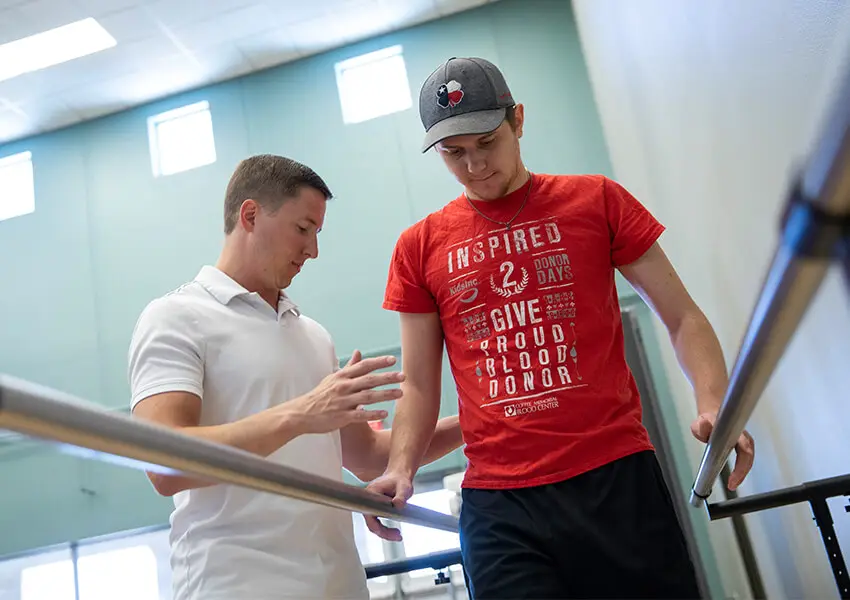Outpatient
Providing patients with rehabilitation assistance to live supported in their households.
Patients receiving out-patient services meet the same admission criteria as those receiving comprehensive residential treatment. Those criteria include: primary diagnosis of acquired brain injury (i.e., traumatic brain injury, stroke, anoxic and other encephalopathies, brain tumor, etc.); 16 years of age or older (younger adolescents are considered on a case by case basis); ability to participate in and benefit from up to 5-6 hours of skilled therapy per day; the patient is medically stable (i.e., the patient does not require 24-hour skilled nursing care); the patient is self-preserving (i.e., not a danger to self or others); and the patient has been free from chemical substances (i.e., “clean & sober”) for 30 consecutive days.
Generally, patients must be 16 years of age or older to participate in the out-patient programs. Moody Neuro PABI programs typically serve 1-2 adolescents per year. 2. Occasionally, Moody Neuro will provide outpatient services to patients that have co-occurring limb loss, spinal cord injury (SCI) or have a SCI without acquired brain injury.
Patients with complete spinal cord injuries at or below the T-1 level are appropriate for admission. During the 2018-19 fiscal year, Moody Neuro Galveston did not serve any SCI patients in the out-patient setting. Moody Neuro Lubbock program served three (3) patients with SCI in the out-patient setting. Additionally, Moody Neuro out-patient programs will consider accepting patients with portable nasal cannula oxygen on a case-by-case basis. A patient may transition from the Residential PABI program to the Outpatient program if the patient has made progress enough to live supported in their own home environment, the clinical teams deems it appropriate and if the funding source permits.
Success Stories

Admissions Department
409-762-6661
8:00 AM – 5:00 PM
